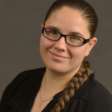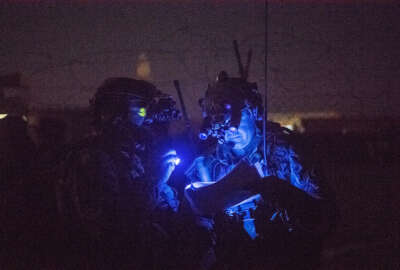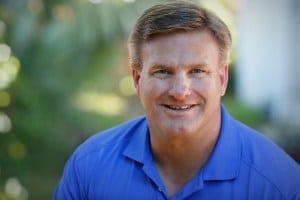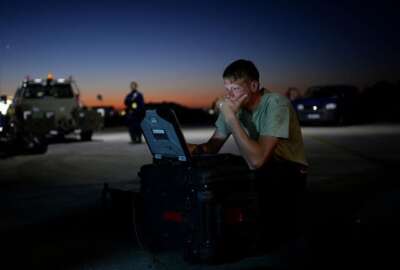
Specialized courses keep SOCOM one step ahead
Created in 2000, the Joint Special Operations University was designed to provide specialized education for the military's elite and its international partners.
Troops in the United States’ special operations forces already undergo physical training that sets the world standard for toughness and effectiveness — but they are chosen for their intellect and strategic capabilities.
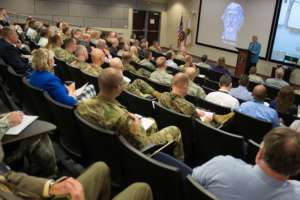
This is where Joint Special Operations University (JSOU) comes in. The courses under the program are designed to provide more detailed education to the special operations military elite and their international partners.
“We want to be the niche that if you need to know something beyond just something you can get in a pamphlet or in a movie — which is probably inaccurate or overstated — you would come to us,” Brian Maher, president of JSOU, said to Federal News Radio’s Tom Temin at the 2018 Special Operations Forces Industry Conference in Tampa, Florida this past May. “We would devote the resources necessary to make sure you [learn] authentic special operations [skills] that fit into your program.”
JSOU courses are dependent on self-registration. Special operators, or civilians, are not required to take the course to fulfill their jobs — but it does help, Maher said. The program relies on peer influence and senior leadership to help promote certain courses.
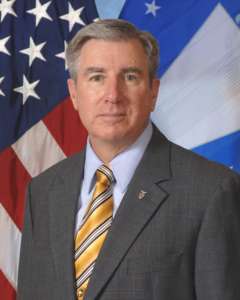
“We do see a very aggressive classroom environment. Hence why, we as the instructor cadre, try to be more the facilitators and not be preaching at what should be,” he said on Agency in Focus: SOCOM. “They have combat experience, they have the worldliness [and] they understand the current environment. It’s just controlling that to achieve the student-learning outcome. We do that very successfully.”
Many of the other military institutions do not have the time or resources, such as subject-matter experts, to devote to special operations education. In 2000, the Defense Department took the plunge and developed this program under the Air Force Special Operations School in Florida.
The university used to be mainly operationally focused, Maher said. In other words, they once brought in just the main military people, from mid- to more senior grades. But now in its own building, JSOU has liaisons dedicated to each of the military institutions and war colleges. The program went from a couple dozen at its beginning to the now 160 permanent full-time faculty members.
All special operators, from all military branches, are now encouraged to apply.
Curriculum
Distance-learning is not effective for long periods of time. JSOU operates on short courses — from two to three weeks, up to nine weeks — that feature both in-class and online learning.
“We had to have the understanding that we cannot create long courses and expect the attendance … at least for the attendants that needed those courses,” Maher said. “They are too valuable to the mission, the unit and whatever job it [is] they are in.”
Online classes allow the operators, even those in combat zones, to spend five or six hours on coursework and not cause a major interruption to their work day.
Resident classes are high-intensity and for the most part include no build up. Maher said the special operators tend to do well in what he called the “pressure cooker.” They do not graduate with degrees, but with special skills that will come in handy in their positions.
“[Courses] have a single theme and that’s centered around something in the special ops world,” Maher said. “It can be command and control, it can be campaign planning … decision making … [and] problem solving in a complex environment.”
In the aftermath of 9/11, some of the courses are now focused on counterterrorism efforts or countering violent extremists. Maher said some also center on the relationship between SOCOM and other federal agencies.
“It’s really learning about things that maybe you don’t get exposed to until late in your career. We bring that in at an earlier age,” he said. “That’s how you thrive and get ahead.”
Students
The students, mainly special operators, are expected to come in already knowing the military acquisition system. Faculty, both civilian and military personnel, then teach them how to adapt those skills to their particular positions.
“These are type-A individuals. Usually special operators are personally selected for the positions they are in,” Maher said. “[They are] enablers, intelligence supporters, communicators, logisticians and even medical and chaplains seeking these positions. They look toward the education as giving them that edge … and understanding early in their career or assignment … so they don’t have to learn by on-the-job training.”
JSOU also supports interagency courses that bring in contemporaries such as those working for the State, Treasury and Justice Departments. They share curriculum, discuss case studies and work on solving problems that could confront the U.S. now or in the future.
“It’s really learning about things that maybe you don’t get exposed to until late in your career. We bring that in at an earlier age,” Maher said. “That’s how you thrive and get ahead … We found that the richness of that environment was second to none.”
He said the courses and roleplaying help special operators develop life-long partnerships that could last for the remaining of their career — from mentors to confidants.
Copyright © 2025 Federal News Network. All rights reserved. This website is not intended for users located within the European Economic Area.
Steff Thomas is a digital editor at Federal News Network.

